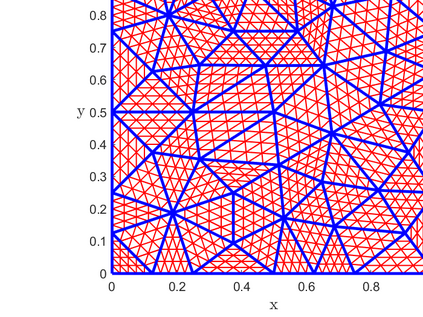In this work we analyze how quadrature rules of different precisions and piecewise polynomial test functions of different degrees affect the convergence rate of Variational Physics Informed Neural Networks (VPINN) with respect to mesh refinement, while solving elliptic boundary-value problems. Using a Petrov-Galerkin framework relying on an inf-sup condition, we derive an a priori error estimate in the energy norm between the exact solution and a suitable high-order piecewise interpolant of a computed neural network. Numerical experiments confirm the theoretical predictions and highlight the importance of the inf-sup condition. Our results suggest, somehow counterintuitively, that for smooth solutions the best strategy to achieve a high decay rate of the error consists in choosing test functions of the lowest polynomial degree, while using quadrature formulas of suitably high precision.
翻译:在这项工作中,我们分析了不同精度的二次规则以及不同程度的片段多角度多角度试验功能如何影响变异物理、知情神经网络(VPINN)在网状精细方面的趋同率,同时解决椭圆边界价值问题。我们利用一个依靠内侧条件的Petrov-Galerkin框架,在精确溶液和计算出神经网络的适当高序分解内插器之间的能源规范中得出先验错误估计。数字实验证实了理论预测,并突出了内侧条件的重要性。我们的结果表明,为了顺利解决问题,实现高超误率的最佳战略是选择最低多元度的测试函数,同时使用适当精度的四边方形公式。









